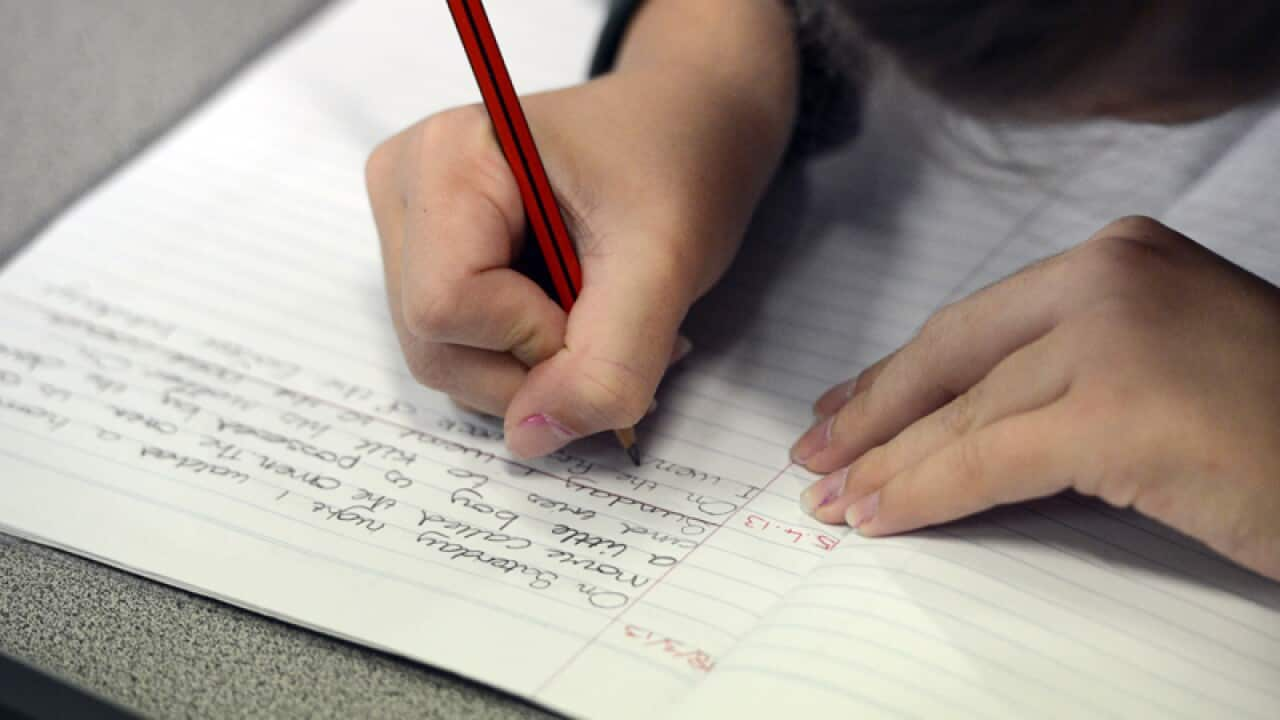A group of teenagers taking part in a drama class - it looks and sounds like fun and games.
But these kids are hard at work, learning Greek for three hours a week at a Community Languages School in Melbourne.
"Go over the homework that we had during the week, then we'll either do grammar or exercises, we'll do history, we do Ancient Greek and every second week we'll do drama as well," student Fortis Kollios said.
Learning Greek was a priority for his mother, Maria Kollios, who enrolled her son in Grade One.
"I wanted him to be able to communicate with his grandparents and also be able to go to Greece and speak to people there, we have family and cousins [there]," she said.
Stefan Romaniw, Executive Director of Community Languages Australia, said these after-hours courses are more specialised and complement language classes in mainstream schools.
"The fact that some schools are finding it difficult to deliver in terms of languages, finding teachers, there's always the argument of the crowded curriculum and so on," he said.
"We would argue that languages need a space in schools, but I think it doesn't detract from the fact that communities want their children to be connected with their communities."
About a decade ago there were around 80,000 students studying at community languages schools across the country. Today, that number is over 100,000.
In Victoria, more than 60 languages are on offer.
Spanish is on the wane, as are Eastern European languages - Ukranian, Latvian and Lithuanian. But interest in Chinese and Greek remains steady.
Dr Nick Dalas, board member of the Greek Community of Melbourne, said migrants can help set a high standard in language learning in Australia.
"The crisis in Greece continues, we are still seeing migrants arriving and the benefit here is that it's also attracting local students who have got a high standard as well," he said.
Mr Romaniw said changing migration patterns can be attributed to growth in emerging languages.
"Very, very small languages, especially a lot of the African languages, they're never going to be provided through mainstream schools," he said.
Increased migration from Iraq, Lebanon and Syria have contributed to a spike in Arabic enrolments.
Fortis's mother said she can already see the flow-on effects from her son's Greek lessons.
"I know that's helped him with his reading and his writing," she said. "He can write better than I can."
Bilingual schools offer language fluency for Australian children:



